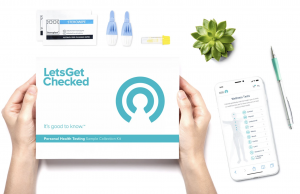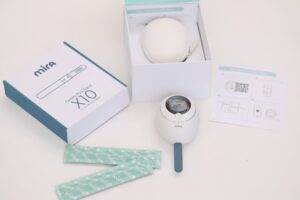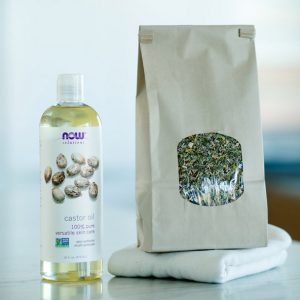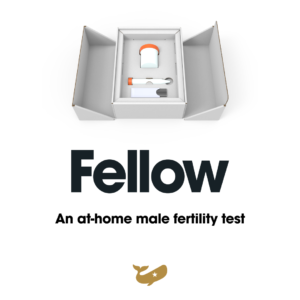How to tell if you’re fertile
USEFUL RESOURCES FROM THIS FERTILITY TV EPISODE
Order the right test for you.
We have a wide range of tests to cover your health needs. Order with next day delivery and avoid sitting in a doctor’s office or clinic.
Track your Fertility
Ready to easily, precisely, and automatically track your ovulation cycles? Let Mira take the guesswork out of getting pregnant, so you know exactly when to conceive.
 Fertility Vagina Steam Baths
Fertility Vagina Steam Baths
Vaginal steam baths are used to assist in the cleansing of the uterus in conjunction with the Arvigo Techniques of Maya Abdominal Therapy for the treatment of numerous female symptoms.
Get the most convenient and complete fertility test for men
- At-home, mail-in sperm test
- Comprehensive, easy-to-understand results
- Lifestyle recommendations
 Never Worry About “What’s for Dinner?” Again!
Never Worry About “What’s for Dinner?” Again!
Learn How to Prep Your Meals for an Entire Week in Just…
A Few Hours!
Transcription:
If you’ve ever asked your partner the question, “How do we know if we’re fertile? How do I know if I’m fertile?” Then this is the video for you because I’m going to cover the nine areas that you need to check out and check off to find out if your fertility is in tip-top shape. So if you want more information on this, then make sure that you keep watching.
Hi. I’m Dr. Marc Sklar, the fertility expert, and I work with couples from all over the world, helping you get pregnant naturally. So if you want more information on how you can get pregnant naturally, then make sure you subscribe to my YouTube channel by hitting this bell right here, so you can watch all the videos that I put out for you.
So, you’ve been sitting down, you’ve been talking to your partner, you’re thinking about having children, or you’ve already started trying, and you’re a few months down the road. And now you start to ask yourself this question, “How do we know if we’re fertile? Where do we start? Where do we go from here? How do we know that everything’s working right so that we can have a baby and a family that we’ve dreamed of?”
Well, this is a question that so many couples asked each other, and reach out to me and ask the same question, “How do we know if we’re fertile and where do we go from here?” And often when I speak to couples, these are the sorts of conversations that we have in the beginning as we’re fleshing out the details and learning more about your case.
So I create a video that helps you break that down and starts to figure out where you go and how to know if you are fertile. I’ve taken some notes. I’ve got it right here. So if you see me looking down, that’s why, because I’m not going to remember all the details that I want to cover for all nine areas off the top of my head. And I want to make sure I don’t forget everything or anything for all of you.
The first area, the first category that we need to check off and review is your menstrual cycle. That’s right. Are you having first and foremost a menstrual cycle? Is it regular or is it irregular? This is a big question that we’re going to ask or that you’re going to ask yourself so that you know how to move forward.
We want your cycles, first and foremost, to be consistent and to be regular. So if you’ve answered this question and said that, “No, my cycles are irregular,” meaning they do not come consistently at the same time, then this is an area of concern and an area that needs to be evaluated and looked at. So let’s break down what a menstrual cycle should look like.
It’s called the menstrual cycle for a reason, which means it starts off with menstruation. You’re going to start bleeding. Day one of your cycle is considered the first day of a full bleed. And this is something that often gets mixed up when I ask all of you to fill out my forms. And one of the questions I ask is, “How long is your menstrual cycle?” I often get the answer of three days or five days.
A menstrual cycle or a full cycle is from day one to day one. So the first day one of bleed to the next first day of bleed. That’s a menstrual cycle. If I were to ask you, “How many days do you bleed for, or how long is your menstruation?” Then we’re looking for how many days do you actually bleed. Three days, one day, five days, whatever that might be. Just to clarify that for everybody watching.
So the first thing we want to know is how long has your menstruation? Hopefully, it’s about three to five days. Then you’ve got your follicular phase, so your cycle is theoretically 28 days and the first part of that is called the follicular phase. This is the pre-ovulation phase of your cycle. Then we’ve got ovulation phase, which is a short window. It’s not as long as all the others because you really should be ovulating on a specific day.
And so maybe we expand that window just to cover a couple of days to give you that window a little bit longer. Basically, ovulation is a short period of time. And then we’ve got the luteal phase, which is the post-ovulation phase, which should last about 14 days. And then if you’re not pregnant, you bleed.
So this is a regular menstrual cycle. It should be about 28 days long. If it fluctuates just a little bit, 26, 27, 28, 29, 30 days, that’s okay. What we don’t want to see is a full, a big shift in a regularity of your cycle. We want to see that be consistent throughout. And so we know that it’s dependable and reliable.
If it’s moving in one cycle, it’s 25 days. The next cycle is 35 days or 45 days, then there’s something for us to look at hormonally with your cycles. So step one is what does your cycle look like? Is it regular or irregular?
Part of evaluating your cycles is understanding how to track your cycles. So if you don’t track your cycles right now, my recommendation is that you begin to track your cycles. And the more information you can gather and track and see from cycle to cycle, the better off it is. The caveat here is that I don’t want it to be stressful. I don’t want it to bog you down. So you’ve got to find the way that makes sense for you to track and know what your cycles are doing, and when you’re ovulating.
The options you have are the low tech option, which is basal body temperature, charting, which is just a thermometer. And you track that in the beginning of your cycle. It’s actually one of my favorite ways to track. It’s cheap. It’s inexpensive, it’s relatively easy to do, and often gives us such wonderful information if it’s done right. And it doesn’t cause you a lot of stress.
The other way that’s low tech is just by charting, like you’re just going to chart day one, day 28, this is what I think I’m ovulating. Maybe you’re tracking your days of intercourse if you have any symptomology throughout. So you’re just tracking days and symptoms, but you’re not really using anything to track that other than maybe an app to input everything into.
The high tech options are all the new gadgets and apps that are available for you to use. And so you can just use a simple app to help track your charting or your BBTs, basal body temperature charts. You can also use apps that help or technology, excuse me, that helps you track if you’re ovulating and what your hormones are doing. And some of my favorite ones are the OOVA and the Mira app. And those give you a lot more information and they learn about your body and your needs, which is why I like those above the others.
The other thing when it comes to ovulation that’s really important for you to recognize is that ovulation may not happen on the same day every cycle. And that’s okay. It might shift a little bit by a day or two. And that’s the value of these apps is it’s important to understand what your body’s doing, and these apps allow you to do that. And the low tech or the high tech options really give you a better understanding for what your body is doing, your menstrual cycle and ovulation.
So these are some ways that you can understand when you’re ovulating, what your body is doing so that it can make it more efficient for you guys to try at home and time intercourse. So it’s important that you know when you’re ovulating so that you know when to time intercourse, and if you are the type of couple that is only having intercourse when the app or the BBT or your body tells you that you’re ovulating, then you might be missing the boat.
It’s not that there’s anything wrong with doing that, but you’re also missing a window of time and potentially causing more stress for yourself. So I like for all of you to actually create a fertile window of time that you’re just going to have intercourse regularly so that you take that burden off and you make it a little bit easier for yourself and hopefully, a little bit more spontaneous and you guys can have a little bit more fun with intercourse versus making it more stressful.
My favorite ways to know if you’re ovulating are some of the ways I just mentioned, so BBT charting or some of those apps, but also looking at physical symptoms. Are you having your cervical mucus and is your cervical mucus egg white cervical mucus, sticky, stretchy, clear, abundant. It makes it easier to have intercourse and more enjoyable.
So that’s something that happens. Your body will increase that cervical mucus as you are ovulating or getting close to ovulation. So that’s a sign. Libido, your libido should increase as you start to get towards ovulation. Your body knows that you want to have intercourse because it’s trying to have a baby. So you have more desire for it. Again, using some of those monitors, but other physical symptoms like are you feeling any twinges? Can you tell which side you’re ovulating from? Do you have any low back pain?
These are all things that your body can tell you that you can be mindful of and aware of, to know if you’re ovulating and how to create your fertile window. Once you know where your ovulation usually runs, if it’s always around day 14 or 13 or 15, it’s in that two to three-day span, then you can start to expand and create a fertile window.
And so I usually go, if I know where I’m ovulating, let’s just say in this conversation, it’s day 14. Then I go five days before, two days after. And then I’ve got my seven to eight-day window that I can set a time and have intercourse every other day and make it easier for myself and my partner.
So area number two that you need to check off after you’ve evaluated your cycles and you know what’s going on there are your hormones. We have to evaluate your hormones. Hormones are an essential piece of understanding how fertile you are, and if there are some steps or treatments that you need to take to improve those hormones.
So there are some key hormones. Now there’s a lot more than this, but I’m going to pare it down to just the key essentials that we want to look at to evaluate how fertile your body is. And so, we’re going to pare this down to just a handful of hormones. The first one is FSH, follicle stimulating hormone. This is the hormone that helps your ovaries mature those eggs or those follicles, and it actually increases as we get closer to ovulation.
The other hormone that pairs with it is LH, luteinizing hormone. This is the hormone that spikes or peaks as we get to ovulation because it helps the ovaries release, or the follicles release the egg at ovulation. It’s paired with FSH because they communicate with one another and we’d like to see those numbers be similar to one another close together.
There’s also estradiol, E2, which is one of the three estrogens. And this is important because it tells us that your body is producing a proper amount of estrogen at the right times of the cycles.
So, these three hormones you want to have tested on day two, three or four of your menstrual cycle, and they should relatively be lower at that time respectively because they all have different ranges. And they will increase and fluctuate throughout the cycle.
Another hormone that I do like to test is progesterone. This progesterone levels should be low in the beginning of the cycle. So if you test it around day two or three or four, it should be very low. It will peak after ovulation, seven days post-ovulation. So you want to test this hormone away from the others after your ovulation. So those are the four key ones. And then the last one is AMH, anti-Müllerian hormone.
So FSH will tell us a little bit more about your egg quality and AMH will tell us a lot more about your ovarian reserve, your egg reserve, how many eggs you have left. And so I do also like to test this hormone in the beginning of your cycle with the other three on day two, three or four, so that we can understand where your hormones are at the beginning of your cycle and what your ovaries are doing and what your body’s telling you, how fertile are you.
So this goes back to that bigger question of how fertile are you. Your cycles tell you one aspect of that. And then the hormones that your body is producing tell you another piece of that, how good your eggs are and how many eggs you have left. So that’s step number two or area number two.
Area number three is your uterus, how healthy is your uterus? Have you had your uterus evaluated? Does it look normal in shape? Are there any abnormalities in the uterus? Do you have any fibroids, polyps? Is the thickness of the endometrium healthy? These are all things that can be evaluated by your OB-GYN or your reproductive endocrinologist to get a better understanding for the health of your reproductive organs, and in this case specifically your uterus. This is often left until much later to evaluate.
And depending on your age, your circumstances and how long you’ve been trying, you may want to look at this a little bit sooner. I’m always one to be proactive and look at things a little bit sooner than maybe others might want to do. But I always just want to check it off, make sure everything looks good and then move on to the next area.
While you’re there evaluating your tubes, then we move on to the next area, which is area number four. And this is the fallopian tubes. If we’re already there looking at your uterus, we might as well also evaluate the fallopian tubes. This is a really important piece often put off by couples because they would rather not have the procedure done because it’s not the most comfortable.
Well, the best way to evaluate your fallopian tubes is to do a procedure called an HSG. This is also known as the dye test where they’re looking to see that the fallopian tubes are open, not spasming, and everything is ready to receive an egg and allow the egg and sperm to meet in the fallopian tube, which is where that happens. So, this is the fourth area that needs to be evaluated, checked off and made sure it looks A-okay.
Area number five has to do with the men. This is having a semen analysis done evaluating sperm health. This is often ignored, put off until later, and I really don’t care for that. It’s 50% of the equation and this does need to be done sooner rather than later.
So in this case, if you have not had your partner or if you’re the one watching and you have not had your sperm tested, now is the time. We need to do a semen analysis to understand how many sperm you’re producing, how much volume you have, how well they swim and how good do they look.
So in some ways it is a beauty contest, but we want to find out all that information so that we can provide the right treatment to change those results because they are … It is possible to change those and improve those and yield the results that we’re looking for. And anytime we’re talking about how fertile are we, we can never ignore the male side, the sperm side of things.
All right, so area number six is genetics. Are there any family history of any reproductive issues? Did any of your parents go through any fertility issues, miscarriages, difficulty conceiving? We want to find out that information because it might affect you. Are there other genetic issues that anyone in the family has had that potentially could have been passed down to you?
And once you’ve checked off all those boxes, maybe you want to run some more blood work to evaluate your genetics. Just like everything else, genetics can be tested. Some of it can be done before. Some of it can be done after we have an embryo, which would require some more advanced techniques and procedures. And hopefully, we don’t need to go that route. But regardless, we do want to know if genetics play a role and what we can do about them. So don’t ignore the genetic piece of this puzzle.
So area seven, eight, and nine, the last three have to do with lifestyle. And these are all things that you absolutely can control. And these are all in your power to make changes and improvements, to see changes and improvements in your fertility. So, number seven is weight. Are you too overweight? Do you not have enough weight? This is an important piece and most of this is dictated by BMI.
What’s your BMI? Is your BMI too high, or is your BMI too low? Both of those variables can impact your fertility and make it more challenging and more difficult to conceive both for you and your partner.
So we want to make sure everybody’s healthy. Weight is good and in line, and that comes down to BMI. So get your BMI checked. This is a simple equation. You can just look up online. Plug in your height, your weight, and it will give you that number. And then you’ll know where you are and where your range is, and if you need to spend some time either increasing or decreasing your weight. Weight absolutely impacts fertility and could impact yours.
All right, number nine, lifestyle. This is a big category but an important category. Lifestyle can mean a lot of different things. So it can mean stress. Are you managing your stress levels properly? We can never get rid of them, but what are you doing to manage them? Sleep, exercise, these are all things that are a hundred percent in your control and you need to become better at or keep doing all the good things that you’re doing to make sure that all of these ducks are in a row, so to speak.
So, yes, how fertile are you can be impacted by your lifestyle, your stress, your sleep, your lack of exercise or too much exercise. These are all variables that you need to take into account.
And then last but not least, nine, this could be the most important thing that you do and have control over is your diet. I talk about this all the time, but basically we’re going to lump this into two different categories. Is your diet junkie or is your diet clean? Those are the two categories. I think all of us can take a step back and objectively look at our diets and decide what areas of it need improvement and what areas are doing just fine.
If you’re having a hard time with that, just do a simple diet journal for a week, write everything you eat and drink down, and then objectively look at it. Maybe you and your partner do this separately and you guys evaluate it together. And you’re going to look at this and you say, “Well, what can we do to improve our health? Maybe we’re not getting enough vegetables. Maybe we’re not getting enough fat or protein,” whatever it might be. Maybe there’s too much sugar or too much junk. These are areas that you absolutely have in your control and need to be improved. So those are the nine categories.
Some things that I did leave out, but not because I didn’t want to, but for two reasons. One is I don’t have enough time to cover all of those in this video. And number two is I’ve covered many of these in a lot of other videos. So if you want more information on how to time intercourse, the best positions for intercourse. Are lubricants okay when we’re trying to conceive and which one should I use, male fertility and all the details that surround that, and so much more. Pretty much anything that relates to your fertility and how you can get pregnant naturally, I’ve created a video for it.
And if you want more information to learn more on how you can improve your fertility, then you can check out those videos right over here. If you thought that this video was valuable, comment below. Let me know. If you’ve got questions about your fertility, comment below. I’m happy to answer those for you as well.
But most importantly, the question I definitely want to hear from you in the comments section is did you know that these nine areas were the important areas to evaluate how fertile you are? So let me know below. Just say yes or no, or yes, I knew or no, I didn’t. And I want to know which one of these nine areas you’re going to start to take action on as well.
So if you want help understanding your fertility, what might be off and what you can do about it, then I want to encourage you to apply for discovery call. My group coaching program is open for you. And if you want to apply to see if you’re the right fit for it and to see if we can help you, then use the link below in the description to do that.
All right, everyone, until the next video, I want you all to stay healthy, stay safe, and most of all, please stay fertile.
H.O.P.E Coaching – Heal naturally to Overcome infertility & get Pregnant by Empowering your body
Who is this for: Any women trying to get pregnant for +6 months
It includes: 60 minutes coaching call with Dr Sklar, The Fertility Expert
During this 1 hour online fertility consultation with Dr Sklar, or his team of natural fertility experts, you will get all the fertility support you need, we will review your case, give you recommendations and create a next steps for a personalized plan to help you get pregnant
The H.O.P.E Coachingis a 60 minutes call where we will go over your fertility case and give you customized recommendations, that work for YOU. Me and my team of fertility doctors are here to help you improve your fertility to get pregnant.





